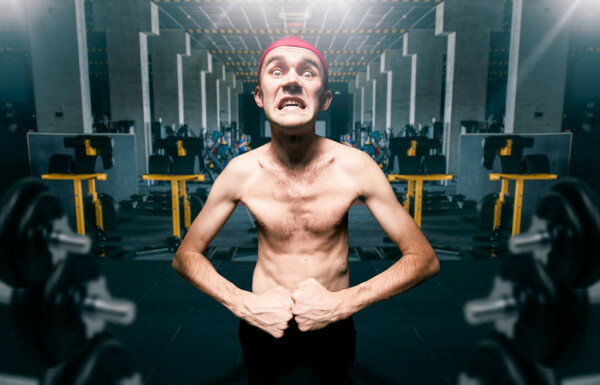How we're used to thinking: "On a cut I lose part of my muscles along with fat. But my trainer said this is normal. And the internet writes the same thing. So I just need to accept it."
How it really is. Here the story from the 90s from the article "I'm on a bulk. No way without fat, or is it still possible?" is largely repeated.
As before, the main reason isn't some mystical sacred sacrifice. Like "there's no way around it." But the most ordinary, hastily scribbled nutrition scheme. And it's good if it's any scheme at all, and not super popular diets from the "survive or die" series.
If you're torturing yourself with stressful cutting regimens like "carb cycling," "keto diet," fasting (including intermittent), as well as "cucumber" with other vegan joys, then... What did you even expect from this?
Naturally, your muscles will burn more merrily than fat. And this isn't even a funny author's comparison for the sake of a joke. For the body, strategic reserve #1 is fat. It gives a lot of energy (9 kcal per 1g) and practically doesn't require it for its own maintenance. Muscles are another matter—protein breakdown gives no more than 4.1 kcal, but maintaining musculature can cost ⅔ of all incoming calories. Do you catch the drift?
During starvation, it's most profitable for the body to get rid of the first freeloader in the family—muscles. Fat is always energy source #2.
"But how do you avoid all this then?"
As often happens—the answer is simple, but implementation isn't so much. There are two main conditions under which muscles can be completely preserved, or even grow, during a cut:
1) The body is interested in muscles
Against the backdrop of weight loss, muscles won't break down with adequate training loads. Training should be sufficiently hard, but controlled with properly selected volume.
Simple example—short failure training. If you don't know what's better—work to failure, but do it in moderation. Literally 3-4 completely failure sets per muscle group. This will trigger the adaptation mechanism.
Here's the thing. When we hit the "wall," the body becomes interested in ensuring that muscles, if they don't become stronger and more enduring, at least don't lose their qualities.
Lovers of "training for pleasure" suffer more than others during cutting periods.
2) The body receives balanced nutrition
Simple principle: no starvation stress—no need to burn muscles.
Yes, there should be a calorie deficit—everyone knows this! But first, calories, and second, smoothly reduced according to weight changes. Not like everyone loves. Jump from 4500 kcal straight to 1500 kcal, then wonder "how did this happen."
Not a deficit due to fats, not a deficit due to carbohydrates, not a deficit due to minerals and vitamins, but only due to caloric content. Everything else should be balanced and sufficient.
That's all.
Eat fully, train diligently. And you'll be able to cut without losing muscle, and even without using rockets and asteroids ;)
Have questions or just want to discuss the article material?
Write to me anytime and I'll definitely try to help you!
For all types of communication:
